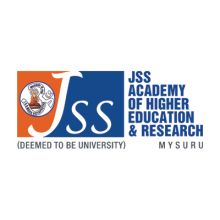Molecular Diagnostic Lab For Infectious Disease

Sponsored by

Sponsored by

Role of Molecular diagnostic laboratories is very crucial during the outbreak of infectious diseases. Rapid and accurate identification of the causative agent is critical in optimizing the appropriate therapy in a timely manner. Over the past years, the development and application of molecular diagnostic techniques has initiated a revolution in diagnosis and monitoring of infectious diseases. The emergence and re-emergence of several infectious diseases that can potentially impact public health worldwide has been a topic of interest in diagnosis of infectious diseases. As there is a lack of Molecular diagnostic laboratories in Mysuru, Karnataka, JSSAHER has taken front step in establishing the Molecular diagnostic laboratory for infectious diseases in the year 2018. This laboratory aimed to cater to the needs of patients not only attending JSS Hospital but also extended its services to many multi- speciality hospitals situated in and around Mysore.
This Molecular diagnostic laboratory in the Department of Microbiology is well organized and equipped with latest PCR equipments that are approved by FDA. The laboratory receives and process the samples round the clock and releases the reports within the turnaround time. This would help in initiation of appropriate timely treatment and reduce the mortality rate to a great extent. The lab initially took its baby step by receiving 3-5 samples per day and within no time the lab started receiving around 20-25 samples per day. The laboratory also extended its services by expanding the scope to several other infectious diseases. Currently the scope of investigations include panels for CNS infections, Respiratory infections, Sexually transmitted infections, Gastrointestinal infections, Autoimmune diseases, Fungal infections and fever panel. Our laboratory has supported in the management of infectious disease outbreaks like Dengue in 2018, H1N1 in 2019 and COVID in 2020. One of the major challenges faced during the pandemic outbreak of COVID was obtaining the results in time. As the whole district had only one testing centre, an idea of establishing COVID-19 testing laboratory was suggested by the department and supported by the management. The RT-PCR COVID-19 laboratory at JSS Hospital underwent accreditation for NABL and stood as the first private laboratory in Mysore to get NABL accreditation for RNA RT-PCR testing. The laboratory was officially and virtually inaugurated by the Honourable Chief minister on January 20th 2020 with the divine blessings of His holiness Sri Shivarathreeshwara Deshikendra Mahaswamiji. The laboratory follows all the infection prevention policies and guidelines as per ICMR. The testing services were extended to all the private hospitals in and around Mysore and the samples started gradually increasing. In view of increasing the testing capacity, the management has provided an automatic extractor which helped the department to test around 200 – 300 samples per day and till date around 28000 samples have been tested. Due to the extended scope and services, the lab also supported several MD postgraduates of the clinical departments, MSc postgraduates of Pre and Para clinical departments and the PhD Scholars in their Research work. Students taking up the research work were encouraged to utilise the facility widely.
The research work carried out by several students and the output of the research was supported by high impact publication in premier scientific journals and have contributed in understanding the importance of rapid and accurate diagnosis of various infectious diseases. The microbiology lab has supported many research projects on HIV, Antimicrobial resistance, Leptospirosis, Dengue, Tuberculosis, Sepsis including Fungal infections. The output generated through the research was highly accepted and published in various indexed journal, of which few were in the area of Mycology (https://www.e-ijd.org/article.asp?issn=0019-5154;year=2020;volume=65;issue=5;spage=423;epage=425;aulast=Shivaswamy, https://bmcinfectdis.biomedcentral.com/articles/10.1186/s12879-020-05038-y), Mycobacteriology (https://dx.doi.org/10.22207/JPAM.13.2.62), Community acquired pneumonia caused by Mycoplasma (https://www.jcdr.net/articles/PDF/12765/40337_CE[Ra1]_F(AC)_PF1(AG_KM)_PFA(KM)_PB(AG_SL)_PN(SL).pdf) and on other pathogenic organisms like Stapphylococcus (https://www.recentscientific.com/sites/default/files/13409-A-2019.pdf).
Our laboratory is ready to take up new challenges and also extend its scope of services to Next generation sequencing, whole genome sequencing and other genotyping methods. There is always a need in targeting antibiotic resistance and improving the currently available assays and test efficiencies where our lab will be committed to continue to do so. Challenges like Advancement in molecular diagnostics will be accepted which would be a great potential for the clinical diagnostics to move further in the front lines of health care.